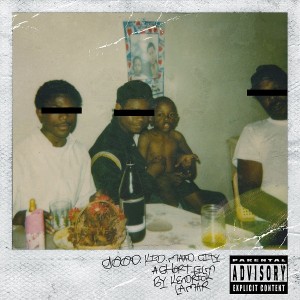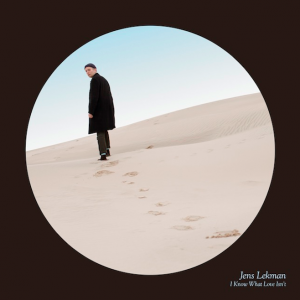
10.
Swans
The Seer
[Young God]
Breaking into The Seer is not easy, nor should anyone go into it assuming that it is. It takes concentration and once that is achieved, the pieces of the album fall together like a puzzle. In its two hours of runtime, Swans create a spectacle unlike anything the band has ever been obligated to build in 2012, but Gira continues to create pieces of intense music that stand among their career best. Much of The Seer is built upon repetition and elaboration that sometimes only a single instrument or player will signal. In its subtlety, the listener is rewarded with gigantic musical changes in volume and pace, becoming this orchestrated piece of evidence that experimentalism in rock can still be as powerful as it was ten or so years ago. Some of The Seer’s most dazzling moments are usually a result of extended suspense such as the title track and the twang rock “A Piece of the Sky,” a song that focuses on ambience for nearly ten minutes and comes with a payoff that makes it more than worth the build-up. The Seer is one of 2012’s most rewarding challenges and it is constantly reminded with every listen.
– Andrew Halverson

09.
Julia Holter
Ekstasis
[Rvng Intl.]
When I caught Julia Holter at this year’s Unsound Festival, her performance was a bit different to her usual live sets. Performing a solo piano set, she laid the songs from Ekstasis bare, demonstrating that beneath the production flourishes there’s a pure heart to these songs. It became clear that tracks like “In The Same Room” aren’t just achingly beautiful for the sensuous worlds that Holter’s production creates, but for the souls of the songs themselves. There’s something behind the facade of the spiraling vocals. It was at that moment that Ekstasis’ full beauty opened up to me, but even before that I could tell it was something special. The clanking vocoder pastiche of “Goddess Eyes I” lends a levity to an otherwise heartwrenchingly beautiful record and even in that moment Holter’s production hand, which folds vocal lines in on themselves and pairs them with low fidelity noise samples, is confident and steady. Last year’s Tragedy was Holter’s bold artistic statement, a testament to her abilities as a composer and producer, but Ekstasis seemed birthed directly from her heart. A truly emotive piece of art marked by stunning composition and production? Some would argue we’ve seen a fair amount of those this year, but for my money, Ekstasis treads the fine line between technical musical accomplishment and deeply affecting songwriting better than any record in a long time.
– Colin Joyce

08.
How To Dress Well
Total Loss
[Acephale / Weird World]
Tom Krell’s first record under the How to Dress Well moniker was a ghost. Shapeless, formless, and translucent, Love Remains found strength in its haunted take on R&B. With Total Loss, Krell took one major thing from his previous record: confidence. No longer content to let his gossamer vocals flutter through his songs like a plastic bag blown through the wind, Total Loss finds Krell constructing songs that are more forthright, more vigorous, and more emotionally affecting. You can hear each heaving, plaintive breath across Total Loss, each scrape of adjacent piano keys, the dimensions of each room in which these songs were conceived. And by drawing back the curtain from his arrangements, Krell invites us deeper into the unabashed, heartbreaking earnestness of the R&B he deconstructs. Total Loss is a cathartic and revelatory journey, one where Love Remains‘ ghost takes shape, admits its sheet to be an elaborate Halloween costume, and reveals the downtrodden yet defiant person underneath.
– Chris Bosman

07.
Kendrick Lamar
good kid, m.A.A.d city
[Interscope / Aftermath / Top Dawg Ent.]
Kid Cudi, J. Cole, Big K.R.I.T., Tyler, the Creator…
That’s a list of artists I was praying I would not have to add Kendrick Lamar to upon release of good kid, m.A.A.d city. You see, after releasing last year’s mixtape/album (nowadays the line is getting blurred) Section.80, Kendrick’s profile has been on the rise, even being proclaimed by Dr. Dre, Snoop Dogg, and The Game to be the new king of west coast rap, signing to Dr. Dre’s Aftermath alongside his Top Dawg Ent. team, and even snagging a collaboration with Lady Gaga which wouldn’t turn out exactly as planned. With so much pressure from fans and creative restriction from the label, it’s no wonder that many new rappers’ studio debuts pale in comparison to their mixtapes. With Kendrick, the stakes seemed to be even higher with the incredulous hype and affiliation with Dr. Dre. Regardless, Kendrick delivered.
good kid, m.A.A.d city is a concept album following around the a young Kendrick Lamar and his struggles growing up in Compton. Like the album’s title suggests, Lamar is a good kid trying and eventually failing to not succumb to the pressures of gangs, violence, drugs, sex, and criminality that surround him. Kendrick deals with the repercussions of seeing a girl whose brothers are gang bangers, gets in trouble with his friends and speeds off in cars while Kendrick raps in the backseat, and even deals with loss when a friend is killed in a shootout.
All the while we’re presented with production from tons of producers who have all been influenced by Dr. Dre’s g-funk in one way or another. Guest verses from Dre, Jay Rock, MC Eiht, and even Drake are on par with Lamar’s phenomenal lyricism and help ensure that this gangster blaxploitation tale is the best west coast rap album since Dr. Dre’s 2001.
Now it’s time for the rest of Kendrick’s Black Hippy crew to drop their studio debuts.
– Evan Kaloudis

06.
Jens Lekman
I Know What Love Isn’t
[Secretly Canadian]
Jens Lekman’s first “proper album” is a devastating one, all lost in the theme of heartbreak, love lost, etc.. So, business as usual then? In some regards, yes: a track like “Erica America” has that sleek, lounge-singer edge that only Lekman can pull off with a straight face, and the thoughtful, anecdote-full “The World Moves On,” has the snazziest sax riff you’re probably going to hear from Sweden without hitting the jazz bars. But within each of the tracks and everything else on I Know What Love Isn’t, the sadness is still there.
There are a select few who can portray sadness as something that sounds comforting, funny, and relatable, and thankfully Lekman is one of those people. “She Just Don’t Want To be With You Anymore” sounds like Lekman telling you the truth about your lovelorn heart at 2am after a breakup, “Every Little Hair Knows Your Name” might be the most gorgeously sad ode to trying to overcome the challenges of moving on, while “The End Of The World Is Bigger Than Love” is his attempt to find happiness from somewhere as seemingly insignificant as one’s email inbox to the fanfare of an election victory. The album is a journey through Lekman’s life, through all the highs and lows, all the funny and unfunny moments. At the end he might not know what love is, and in a way that’s good (the day he figures that out, we’re doomed as listeners). He actually might have learned the more valuable lesson, one which he proclaims before the music even begins: I Know What Love Isn’t.
– Ray Finlayson

05.
Tame Impala
Lonerism
[Modular]
At first glance the word ‘lonerism’ might appear meaningless or lightweight, mostly because it’s a made up, but after spending some time with Tame Impala’s opus of a sophomore album it makes perfect sense – more than that, it defines a whole state of (self-)consciousness that we’ve all experienced in our fast-moving amorphous lives that the modern world demands. Kevin Parker, the mastermind behind Tame Impala, has created a set of songs that explore all the different sorts of mental pathways your thoughts can take when spending time alone; self-reflection, analysing relationships with others, meditating on one’s place in the universe and more. From the opening repeated mantra of “Be Above It” that blends perfectly into the chugging, locomotive drums that give the album its first burst of momentum, the lyrics are accentuated perfectly by the detailed and textured music which seems to fill out the indescribable layers of these complex emotions that words just can’t. Take, for example, Parker’s uncontrollable attraction to the beautiful girl in “Music To Walk Home By”; that feeling of drowning in love is perfectly rendered by the guitars that roil around and smother the track. In “Why Won’t They Talk To Me,” the storm of personal insecurity and alienation mixed up with hatred is realized by the swirling synths that agitatedly shift and glide beneath the melodies. And in “Apocalypse Dreams” the thunderous piano that reverberates throughout the song accentuates that melodramatic feeling that the world is falling down around your ears. The array of mental states throughout Lonerism are ones that we’ve all experienced, but rarely shared. Tame Impala have tapped into these emotions and put them beautifully on display, turning them from internal insecurities into the most comforting fact of all: that none of us are alone in feeling them.
– Rob Hakimian

04.
Frank Ocean
channel ORANGE
[Def Jam]
There’s been a lot written about Frank Ocean this year: on the “Hotel California” Guitar Hero fiasco with Don Henley; the “coming-out” letter he wrote about his first love, who was also a man; that bandana. In fact, it feels as though most of what’s been written about Ocean has made only cursory mention of Channel Orange.
Which is a shame, because in a champion year for R&B, Ocean’s proper debut was a huge standout. Conceptually tight and non-conventional, with a highly eclectic mix of formidable singles and deep cuts, Channel Orange delivered something far richer than could’ve been predicted by Nostalgia, Ultra alone. Moments like the “Bad Religion” to “Pink Matter” combo—where teeth-gnashing heartbreak is brilliantly transformed into detached, alien indulgence—are the stuff of classics. Meanwhile, “Thinkin Bout You” still baits one into trying to match Ocean’s falsetto, and the literal epic “Pyramids” shows how potent of a songwriter he can be when he blends fantastic non-history with strippers who are slowly gravitating out of reach. This, and the drug mule love story that is “Lost” could well be considered the album’s high point.
With a charismatic deadpan that can be cut loose at any moment, with enveloping narratives, and with backing tracks that vary widely from the bleak and sparse to the grandiose and bombastic, Frank Ocean made too big a mark on 2012 to be ignored. Throwing around the word “classic” within a few months’ time is risky business, but it’s very, very hard to imagine this record collecting much dust (virtual or otherwise) anytime soon.
– Weston Fleming

03.
Andy Stott
Luxury Problems
[Modern Love]
No album this year has perplexed me as much as Luxury Problems has, and none in quite the same way. It has remained my object of fascination since first listen, chiefly because I’m no closer to pinning down how exactly it succeeds at sounding both so innovate and so utterly seamless. Is it just the improvement that it represents over Andy Stott’s earlier yet accomplished EPs? It is the faultless alliance that he forges between his alien production and Alison Skidmore’s organic but untouchably ethereal vocals? Is it the way songs like “Sleepless” and “Up the Box” pull themselves out of the ambient mire to become fiercely memorable experiments? Or how others like “Numb” and “Hatch the Plan” manage to sound trenchantly individualistic while also adhering to the album’s plush, full-blooded aesthetic? I doubt I’m any closer to piecing it all together than I was two months ago. Perhaps that’s just a testament to what an indelible document Luxury Problems really is. Dance album of the year? Without question.
– Brendan Frank

02.
Chromatics
Kill For Love
[Italians Do It Better]
If you have access to a physical copy of Chromatics’ Kill For Love, I recommend you flip it over and take a look at the back cover. It’s designed like a spartan movie poster, complete with acting, writing, and even director of photography credits with some of the record’s track titles and band members worked in (Starring RUTH RADELET as “Lady”). The words “Original Motion Picture Soundtrack” are even emblazoned in big silver text right through the center. Four months prior to Kill for Love Johnny Jewel and Nat Walker released a two hour collection of instrumental and ambient pieces as Symmetry called Themes For An Imaginary Film. It’s not hard to figure out what’s going on here.
Kill For Love is exceedingly praise-worthy for its tightened songwriting, forever immaculate production, and unmistakable blend of smoggy Italo disco, synth pop, and post-punk resulting in some of the strongest and most recognizable pop cuts of the year. But Kill For Love is a triumph of the album format. Its (oft-maligned) ninety-minute runtime and poignant ambient segments give its pop-leaning stretches a felt context and surround them with a roiling, increasingly tense and palpable mood. Whatever the Kill For Love film would look like, it would depict slow human decay with a tragic romantic entanglement at its center. The album’s themes and atmosphere build to a pitch and all comes crashing down on “There’s A Light Out On The Horizon” and “The River.” You won’t find a more fully realized record this year.
– Will Ryan

01.
Flying Lotus
Until The Quiet Comes
[Warp]
Plenty of artists belong in the worlds they choose to write themselves into. Frank and Kendrick’s albums couldn’t have worked as well as they do set anywhere else, and it’s obvious that the stakes both musicians have in geography and the personality of landscape are essential to how the stories and songs therein render themselves. Flying Lotus’ still-great Los Angeles exposes a version of a universe that is unique to the artist’s imagination, sure, but on Until The Quiet Comes, he creates what BPM’s own Will Ryan I think rightly called a spiritual, mythological universe, and he creates it from what feels like nothing. Even now, months after I heard the album for the first time, I’m still disarmed by the power with which Flying Lotus surprises me. There’s something to be said about negation here, and that sometimes it’s by diminishing, creating a hinge off of our expectations of muscularity, that a truly affecting experience is accomplished.
Flying Lotus does this here better even than on Cosmogramma, a masterpiece of its own purpose (one that is not interchangeable with UTQC’s), conjuring a space with enough headroom to execute punches that feel too huge for the sonic range of possibility. This is just to say that even though this Flying Lotus album is meticulous and of an aesthetic beyond hip-hop, IDM, or jazz, all of which rarely escape conversation about FlyLo given his extensive influences, it still manages the kinds of highs that speak to each, as well as to his discipline as a visceral, fun-loving live performer. The scale of his vision seems to be only growing, and that it’s realized in a cohesive, dizzyingly enjoyably 46-and-change minutes here is all the more impressive. It’s rare that we get to witness an artist with an ear as acute as Flying Lotus’ pushing beyond himself and building galactic playgrounds for anyone willing to visit, explore, and indulge in their imaginations.
– FM Stringer


